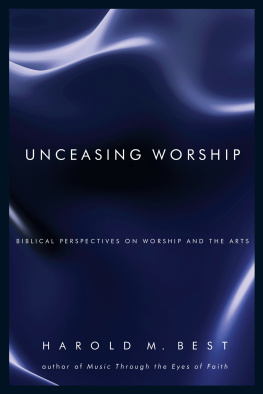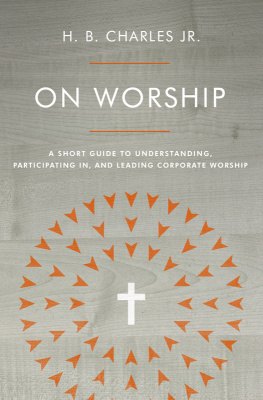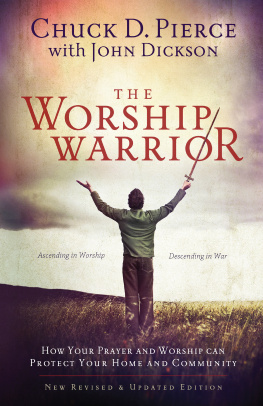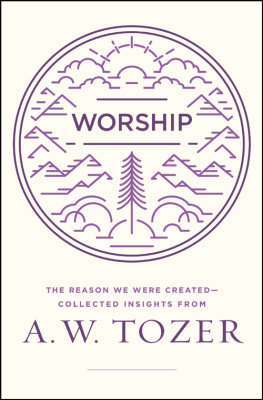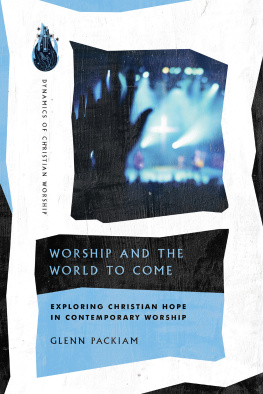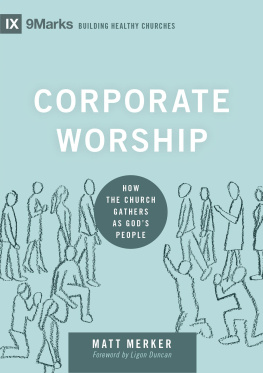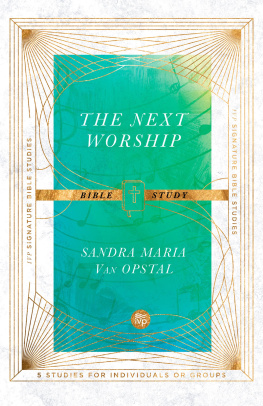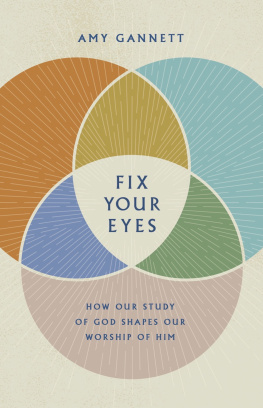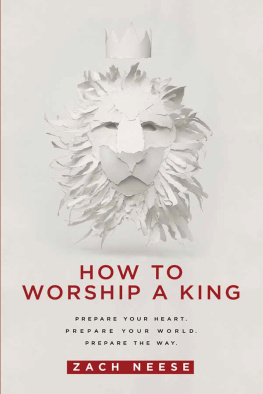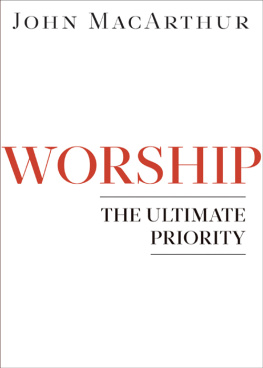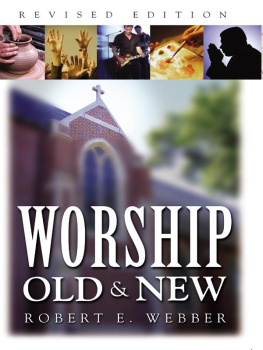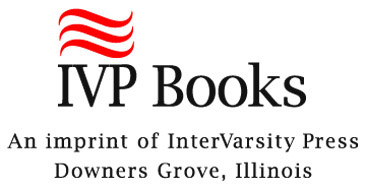UNCEASING WORSHIP
BIBLICAL PERSPECTIVES
ON WORSHIP AND THEARTS
HAROLD M . BEST
InterVarsity Press
P.O. Box 1400, Downers Grove, IL 60515-1426
World Wide Web: www.ivpress.com
E-mail:
2003 by Harold M. Best
All rights reserved. No part of this book may be reproduced in any form without written permission from InterVarsity Press.
InterVarsity Pressis the book-publishing division of InterVarsity Christian Fellowship/USA, a movement of students and faculty active on campus at hundreds of universities, colleges and schools of nursing in the United States of America, and a member movement of the International Fellowship of Evangelical Students. For information about local and regional activities, write Public Relations Dept., InterVarsity Christian Fellowship/USA, 6400 Schroeder Rd., P.O. Box 7895, Madison, WI 53707-7895, or visit the IVCF website at .
Scripture quotations, unless otherwise noted, are from the New Revised Standard Version of the Bible, copyright 1989 by the Division of Christian Education of the National Council of the Churches of Christ in the USA. Used by permission.
All rights reserved.
Cover design: Cindy Kiple
Cover image: Torben Soettrup/iStockphoto
ISBN 978-0-8308-7758-4 (digital)
ISBN 978-0-8308-3229-3 (print)
This digital document has been produced by Nord Compo.
TO SAMUEL HOPE AND JUEL MARIE WARNER
SAMUEL HOPE is a trustworthy, persevering and intellectually gifted musician. He is also the executive director of the four arts-accrediting associations in the United States: the National Association of Schools of Music, the National Association of Schools of Art and Design, the National Association of Schools of Theater, and the National Association of Schools of Dance. In this capacity he has brought unusual wisdom, stature and statesmanship to the field of accreditation, both within the arts and among the other academic disciplines. The nature of his work carries him from the arts themselves to accreditation standards and into the thickets of government policy, but always back again to the confounding variety of artistic expression. He seems able always to find light and shine it on a given agenda. But what is even more important about this gentleman is the comprehensive way he brings truth to bear on the making of art, the living of life and the particularities of his trade. He does this without superficial spiritualization or a self-referencing show of talent. He quietly glorifies God, before whom all of his work is authored and poured forth. I admire him greatly and am indebted to him for the richness he has brought to my mind and spirit.
JUEL MARIE WARNER is my wife. Her married name is, of course, Juel Marie Best. But here I choose her earlier name because in her maiden days she decided to set her love on me when I least deserved it. She saw a certain amount of good in me, so she says, and no small amount of blemish. She chose to befriend me, then to share herself with me and all too soon in our marriagein an onset of spiritual dark and psychological gloomshe cradled me in her quiet strength, giving me comfort and cheer at no small expense to herself. Juel is a simple, uncluttered yet sophisticated and energized wife, mother, grand-mother and elegant lady-at-large. Her amazing smile is interrupted only occasionally. No one is unwelcome in her company; she transmits to all a clear message of their worth and loveliness. She believes everything Jesus says. Her wisdom cuts through all the perplexing life stuff and comes to rest, time after time, smack in the middle of the truth that I so often doubt, complicate or overlook. I love her and want merely to love her all the more, so as to treat her as Jesus would, had he taken a wife to himself.
To these strikingly different neighbors, each of whom I truly love, I dedicate this book with gratitude that I have been allowed to company with them.
INTRODUCTION
W hy another book on worship? Who should read this particular one, and why?
As to the first question, I want first to acknowledge the value of a growing body of work on the subject. Thanks to much of it, we have an impressive store of information and perspective that should significantly enhance certain particulars of the work of both ministry and laity in corporate worship. I admire the spirit, the passion and, in some instances, the nearly encyclopedic minds that have provided us with new material and newly considered older material.
Having said this, I find that throughout most of these works the subject of worship is limited to what happens in the corporate assembly in its assigned times and places. While it is currently popular to say that all of life is worship, there seems to be little thought given to a theology of worship that makes comprehensive sense out of this statement. Thus the significance of weekly worship continues as a separate subject. This carries the implication that time-and-place worship is the primary, if not only, venue for our worship, while the remainder of our living falls into another category. And it is on behalf of this time-place emphasis that we have the abundance of symposia, workshops, books, materials, methods and options. We have gotten used to referring to this heightened interest as a worship renewal, but I want to suggest that there is a difference between a renewal of interest regarding the corporate assembly and a comprehensive renewal that issues out of a radical shift in emphasis between time and place and day-by-day continuity.
Furthermore, two other separations have quietly worked their way into prominence, both of which arise out of otherwise welcome changes in the life of the church. I refer first to what is regularly called contemporary worship, or praise and worship. Here, the separation can be seen in the way worship often refers primarily, if not exclusively, to the opening segment with worship as the overriding theme. The rest of the service, by implication, is something else. The second separation is even narrower than the first but derives directly out of it. I refer to music itself, which to many leaders and laypersons turns out to be the worship. As a result, the glorious and inescapable glory of worshiping God in variegated and integrated continuity is overlooked.
If worship renewal is the real issue, then it becomes all the more important to approach the subject from the largest possible perspectiveone that takes in the best of the newer practices, integrates them with a historical perspective that has regularly dealt with the tension between new and old, and enlarges the periphery to include the most far-reaching theology of which the Scriptures are capable. Doing this will open the subject up to the force of christocentric theology and will therefore summon us to consider what it means to live a life of worship of which time-and-place emphases are but a part.
This I have tried to do. The burden of this book develops the concept of continuous outpouring as the rubric for our worship. As God eternally outpours within his triune self, and as we are created in his image, it follows that we too are continuous outpourers, incurably so. The trouble with our outpouring is that it is fallen. It needs redeeming, else we spend our outpouring on false gods appearing to us in any number of guises. Salvation is the only way our continuous outpouringour continuous worshipis set aright and urged into the fullness of Christ.

